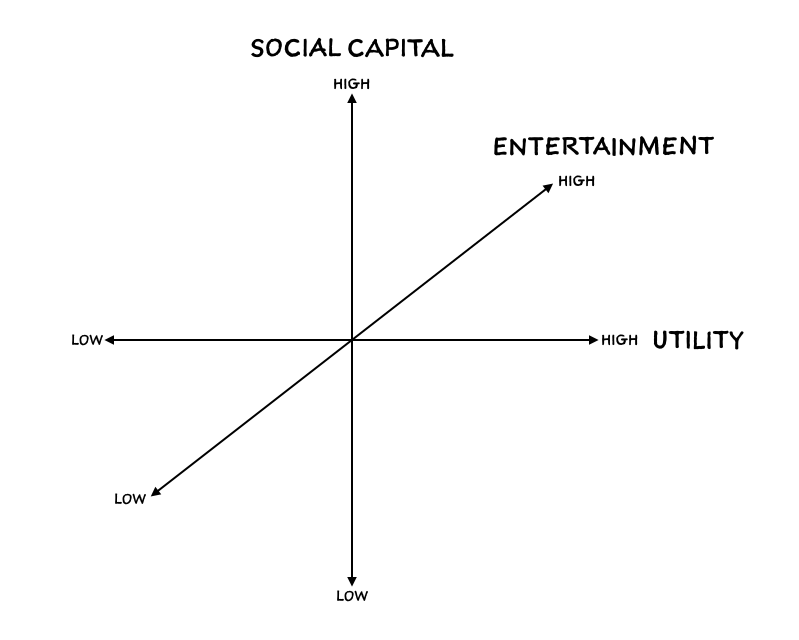Source: TikTok and the Sorting Hat | Remains of the Day, by Eugene Wei
I like to say that “when you gaze into TikTok, TikTok gazes into you.”
One can debate the semantics of what constitutes a social network forever, but what matters here is realizing that another way to describe an entertainment network is as an interest network. TikTok takes content from one group of people and match it to other people who would enjoy that content. It is trying to figure out what hundreds of millions of viewers around the world are interested in
…
The idea of using a social graph to build out an interest-based network has always been a sort of approximation, a hack. You follow some people in an app, and it serves you some subset of the content from those people under the assumption that you’ll find much of what they post of interest to you. … But what if there was a way to build an interest graph for you without you having to follow anyone? What if you could skip the long and painstaking intermediate step of assembling a social graph and just jump directly to the interest graph? And what if that could be done really quickly and cheaply at scale, across millions of users? … Now imagine that level of hyper efficient interest matching applied to other opportunities and markets.
the three purposes which I used to distinguish among networks
Apps like Facebook, Instagram, and Twitter are built on social graphs, and as such, they amplify the scale, ubiquity, and reach of our performative social burden. They struggle to separate their social functions from their entertainment and utility functions, injecting an aspect of social artifice where it never used to exist.
That an app launched out of China could come to the U.S. and sprint into cultural relevance in this attention marketplace should be a wake-up call to complacent U.S. tech companies. Given how many of those companies rely on intuiting user interests to sell them things or to show them ads, a company like TikTok which found a shortcut to assembling such an interest graph should raise all sorts of alarm bells.
in many situations when people ascribe causal power to something other than culture, I’m immediately suspicious.
…
It turns out that in some categories, a machine learning algorithm significantly responsive and accurate can pierce the veil of cultural ignorance. Today, sometimes culture can be abstracted.
…
TikTok has figured out the hardest piece, the algorithm. With it, a massive team made up mostly by people who’ve never left China, and many who never will, grabbed massive marketshare in cultures and markets they’d never experienced firsthand. To a cultural determinist like myself, that feels like black magic.
